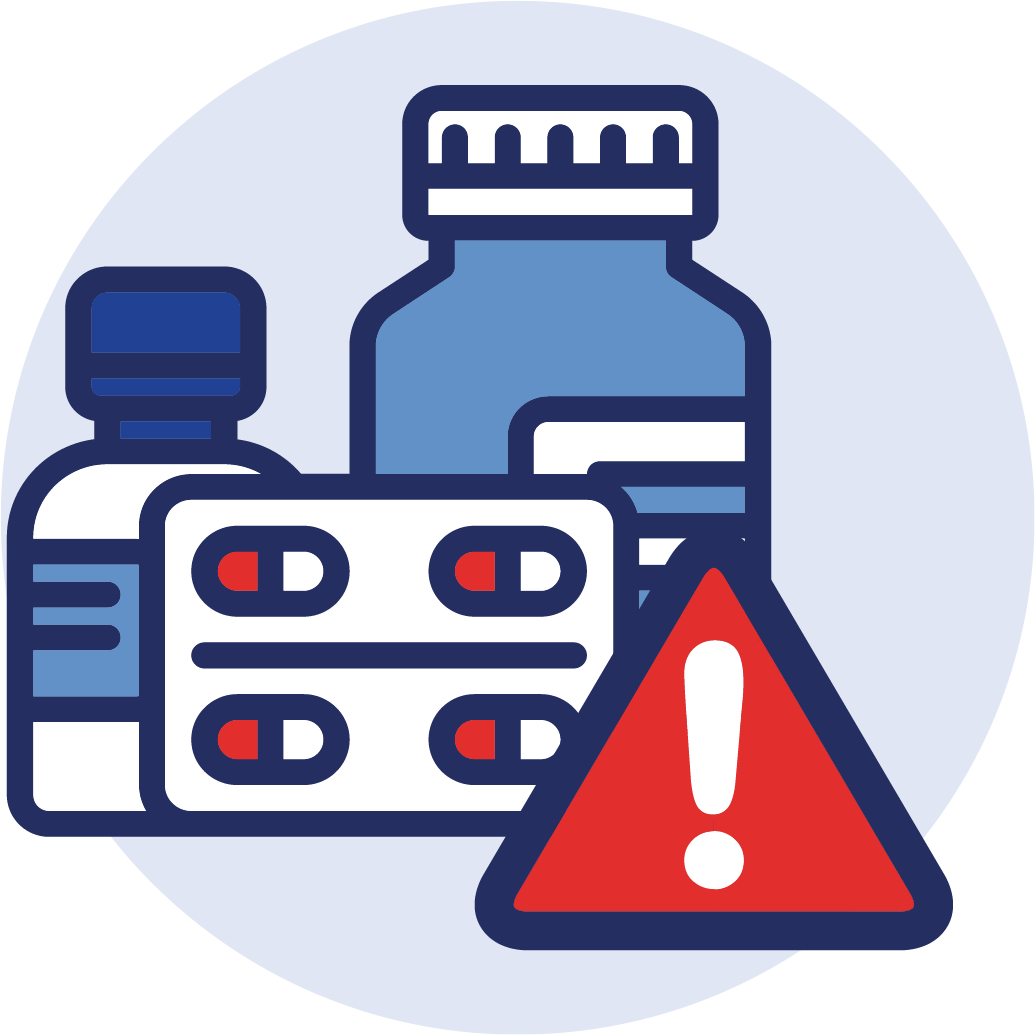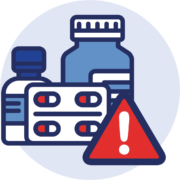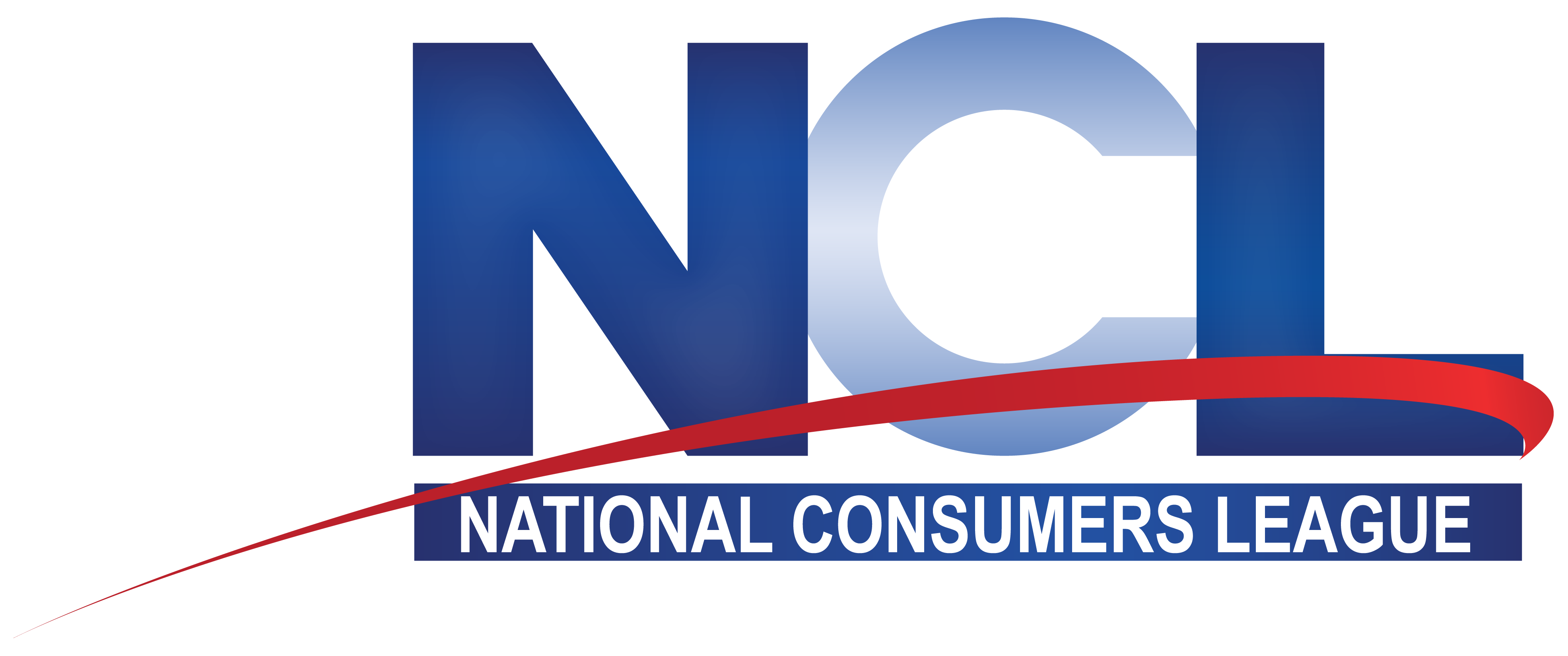Health risks and scams
Counterfeit drugs are fake copies of real, legitimate medicines. They often look identical to the real things—the same size, shape, and color.
Health risks
Counterfeit drugs may contain:

- an incorrect amount of the active ingredient,
- the wrong active ingredient, or
- no active ingredients at all.
Counterfeit drugs laced with fentanyl (an opioid that is up to 50 times stronger than heroin and 100 times more potent than morphine) have been found in 48 states, killing people in 33 of them.
In addition to individual harm that counterfeit drugs can cause, they also have the potential to negatively impact entire communities. One example is the case of counterfeit antibiotics. By failing to deliver the much-needed treatment, fake antibiotics can create increased antibiotic resistance in a community, decreasing the effectiveness of these critical medications.
Other risks
Identity Theft
Consumers often unknowingly purchase counterfeit drugs directly through online sources that seem like legitimate pharmacies but are, in fact, illegal.
Consumers are lured into these illegal sales because the sites offer:
- large price discounts,
- the option of purchasing medications without a prescription, or
- medications in larger quantities.
In addition to the health risks caused by counterfeit drugs, using illegal online pharmacies puts consumers’ personal financial information into the hands of criminals.
Illegal online pharmacies are less likely than legitimate sites to meet security standards, which means consumers who shop at them may be at risk of having their information leaked, stolen, or shared by other bad actors. In fact, some fraudulent online pharmacies plant malware downloads intended to steal personal information from consumers who visit them. Consumers become at greater risk of identity theft.
Rip-offs
Many of the illegal online pharmacies require consumers to pay for their medications with payment services like PayPal or Google Pay. Many consumer complaints filed with the National Consumers League’s Fraud.org report that they have paid for the drugs but never receive it. When consumers try to track down their purchases or get their money back, they experience an endless loop of customer service interactions or no response at all. Ultimately they never get their money back.
There are legitimate online pharmacies that operate legally and provide consumers with convenient and safe access to real medications approved by the Food and Drug Administration (FDA).
But far too many sites are illegal.
According to the Alliance for Safe Online Pharmacies, there are 35,000 active online drug sellers. Yet, 96 percent of them are illegal, failing to comply with the law and pharmacy practice standards.
With so much at risk to our health and pocketbooks, it’s crucial to know how to spot sketchy websites before sharing personal and financial information with them. For tips on how to stay safe when purchasing drugs online, click here.






